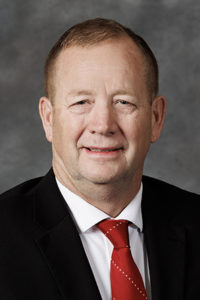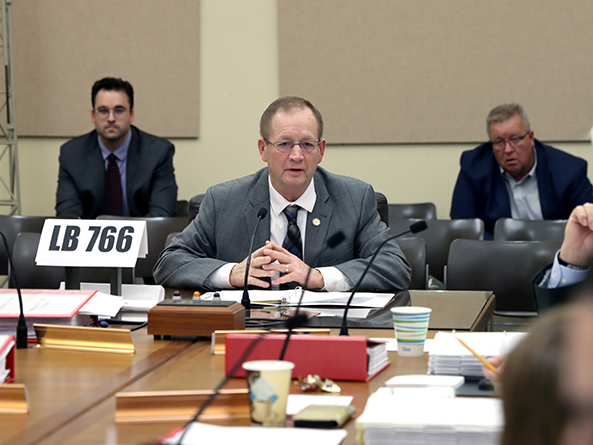Reverse osmosis funds sought for private wells
The Appropriations Committee heard testimony March 13 on a bill that would provide state funds for reverse osmosis systems in rural parts of the state.

As introduced by Sen. Barry DeKay of Niobrara, LB766 would appropriate $3.25 million in American Rescue Plan Act funds in fiscal year 2023-24 and FY2024-25 to the state Department of Environment and Energy for reverse osmosis system grants.
DeKay said funds would be used only for private drinking water wells where a test for nitrates results in a reading of at least 10 parts per million. He brought an amendment to the hearing that would lower the appropriation to $1.625 million each year and specify that any money awarded must comply with ARPA requirements.
Nebraskans “care deeply” about water quality, DeKay said, especially in areas where nitrates are a significant concern.
“This bill would provide a short-term solution while the Legislature and other stakeholders work to create longer-term solutions,” he said. “Providing safe drinking water for all Nebraskans ought to be a priority.”
Andrew Dunkley, representing the Nebraska Farm Bureau, Nebraska Cattlemen, Nebraska Corn Growers, Nebraska Soybean Association, Nebraska Pork Producers Association and the Nebraska State Dairy Association, testified in favor of the proposal.
The DEE grant program is the only statewide mechanism dedicated to the problem of nitrates in Nebraska drinking water, Dunkley said, a problem for which there is “no simple fix.” Reverse osmosis systems are the only way to address the issue, he said, but they can be expensive for homeowners, ranging from $500 to $5,000.
“Water quality is an extremely important issue and one that we have been advocating for more local, regional and state involvement on,” Dunkley said.
No one testified in opposition to LB766 and the committee took no immediate action on it.


